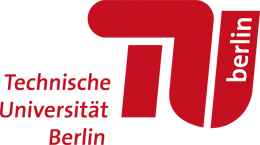The Qualitative background of why a DSL knowledge based platform is needed in the context of Sustainability
Abstract
With reference to Smart Manufacturing and Industry 4.0 in general, a Digital Thread connects the data and processes for smarter products, smarter production, and smarter integrated ecosystems. While the tangible goods (products and production lines) are understood as needing a Digital Twin as an executable model, i.e. an in-silico entity on which to virtually explore design, production, quality, and lifetime maintenance, the immaterial goods like software and analytics artefacts are not yet treated on par. For the new Digital Thread paradigm to enter the mainstream, models need to be coupled with AI, ML and Data Analytics capabilities, to provide an integrated platform for automatic transformations, generations, and analyses that take advantage of the formalized knowledge about the immaterial and material entities. The formalized knowledge needs to include a variety of models together with Domain Specific Languages that use semantic types at their core.
The objective of this overall work is to develop a service-oriented Domain Specific Language (DSL) platform for knowledge management (KM-DSL) especially concerning sustainability and risk management, and then apply it in the context of the Digital Thread platform and demonstrators currently under development in the research group. The KM-DSL is the basis for the design of the smart and aligned processes and workflows that will describe and characterize the collaboration of humans and machines in the future advanced production environments. This paper will examine two strands of that work looking at business logic and understanding along with knowledge harvesting that concentrate on two case studies that will underpin future research to create the aforementioned DSL platform for knowledge management.
Full Text:
PDFDOI: http://dx.doi.org/10.14279/tuj.eceasst.81.1194
DOI (PDF): http://dx.doi.org/10.14279/tuj.eceasst.81.1194.1135
Hosted By Universitätsbibliothek TU Berlin.
 Electronic Communications of the EASST
Electronic Communications of the EASST
